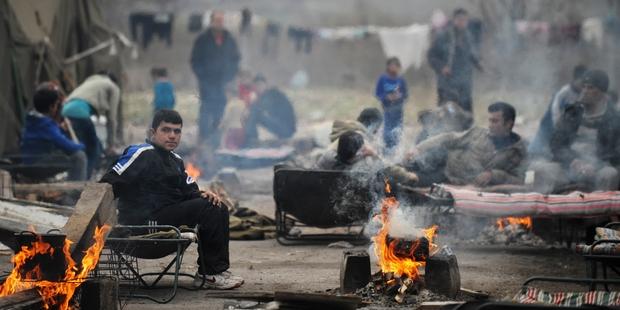
UN: Europe needs to do more for Syrian refugees
The UN’s refugee agency on Friday said that Europe has hosted only a “miniscule” number of Syrian refugees, and needs to do more the help Syria’s neighbors shoulder the refugee burden.
“We’re calling on European countries to strengthen their response to the Syrian crisis.We’re urging states to ensure access to their territory, we’re urging states to ensure fair and efficient asylum procedures”,Melissa Fleming, spokeswoman for the U.N. High Commissioner for Refugees (UNHCR), said.
Since the Syrian civil war broke out in March 2011, about 123,600 Syrians have fled to European countries, crossing international land borders or taking the risky trip across the Mediterranean Sea. More than half of them are in Sweden and Germany, which are already among the most generous hosts for refugees from all over the world, and host large Syrian communities. Thanks to a UN program, almost 32,000 resettlement places in 17 countries have been offered to the most vulnerable Syrian refugees, but the UNHCR wants that number to be 100,000 by 2016.
“Relative to the 2.9 million refugees in countries immediately surrounding Syria, these numbers are small. In fact, they’re minuscule. They represent only four percent of Syrian refugees. Just to put that into perspective, Europe has a population of 670 million people. Contrast that to Lebanon, which has a population of 4.4 million people and has received 1.1 million refugees”, Fleming said.
She pointed out the vast number of Syrian refugees in Iraq, Jordan and Turkey, and said that they had “reached a saturation point”. She also underlined that there have been some positives in Europe, like a de facto moratorium which has been imposed by many countries on refugees returning to Syria.
She pointed to “disturbing gaps and practices”, including “pushbacks”, at sea and land borders by EU members Albania, Bulgaria, Cyprus, Montenegro, Greece, Russia, Ukraine, Spain and Serbia. She also criticized the very slow access to asylum procedures, with refugees waiting in deplorable conditions for months at over-burdened reception centers.
 العربي الديمقراطي The Latest From The Arab World
العربي الديمقراطي The Latest From The Arab World




